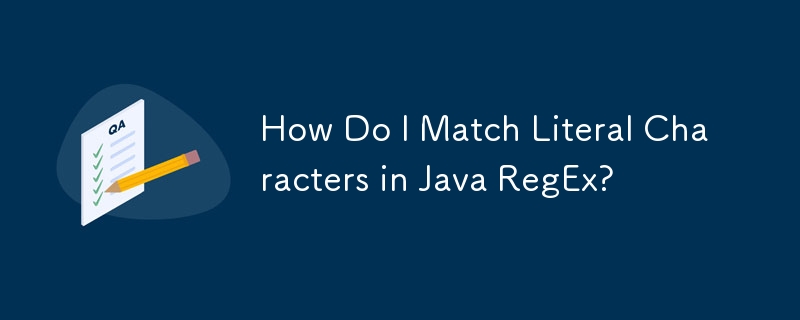

Understanding Metacharacters and Ordinary Characters in Java RegEx
In Java RegEx, the dot character (.) has a dual role, serving both as a metacharacter and an ordinary character. This distinction can be a source of confusion for new users.
Metacharacters vs. Ordinary Characters
Metacharacters have special meanings within a regular expression. For example, the dot metacharacter matches any single character, while the asterisk (*) metacharacter matches zero or more repetitions of the preceding pattern.
In contrast, ordinary characters retain their literal meaning. For instance, the '.' character outside of a regular expression would simply represent a period.
Handling Metacharacters in Java RegEx
To use a metacharacter as an ordinary character, it must be escaped with a backslash (). This is because regular expressions in Java are stored as strings. Therefore, to represent a literal backslash, you need to escape it with another backslash.
For example, to match a literal period, use . instead of . Same applies for other metacharacters.
Example:
String text = "This is a sample string.";
// Matches the literal period using an escaped metacharacter
Pattern pattern = Pattern.compile("Th\.is");
Matcher matcher = pattern.matcher(text);
if (matcher.find()) {
System.out.println("Match found: " + matcher.group());
}By following these guidelines, you can distinguish between metacharacters and ordinary characters in Java RegEx and handle them effectively.
The above is the detailed content of How Do I Match Literal Characters in Java RegEx?. For more information, please follow other related articles on the PHP Chinese website!




